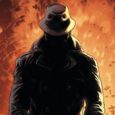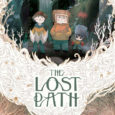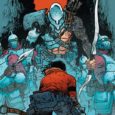Netflix’s Marvel series have all had their peaks and valleys, but nothing is more middle of the road than The Punisher. With all these titles seemingly being cancelled after their latest entries, the sands in the hour glass of our time with these characters is nigh. While The Punisher may never reach the lows of Iron Fist, it also never ascends to the highs of Daredevil, and the second entry into the series ends up being a mixed bag.
The Punisher Season 2 is much like the first season; yes, there is some good but it is balanced out with plenty of bad. While there is still much to enjoy, this 13 episode long series really only has about 6 episodes of interesting content. Why Netflix feels the need to elongate every one of their series and stretch things out to comical lengths is a bit strange. The moments that are good are great, wonderful even in some parts. But are these few moments worth all the fluff the viewer has to navigate through?
So what exactly is good, then? Well, there was enough material to keep me watching in about 2 or 3 sit downs… but in hindsight, I realize I did not have much else going on or things to get to. So, was the show keeping my interest, or was I just bored and willing to watch anything? It’s going to be a case by case basis with each viewer. The worth of the second season of The Punisher correlates to your investment in the ongoing (and soon to be closing) universe. However you end up feeling though, there is some great stuff here.
Jon Bernthal, and his portrayal of Frank Castle is tops. Jon embodies Frank in the same ways that Robert Downey Jr embodies Tony Stark. The casting is perfect here, and while that great casting does not extend to every character on the show., there are still some stand outs. Ben Barnes as Billy Russo/Jigsaw is also a great choice, and while his arc may be a bit too long in the tooth, its overall a good arc for a troubled villain. However, elements and reveals of his arc ground the high ambition concept of a villain going through memory loss and PTSD. Josh Stewart as John Pilgrim is outstanding as well. He is quite the presence but his story does not really take off until late in the series, and by then it can feel too late for some.
The action is also a stand out, there is way more hand to hand combat this time around, but that is not at the cost of some great gun focused scenes. The choreography is fantastic, and the visceral moments are some of the best stand out parts of the whole series. You get a good action scene at least once an episode, so it’s hard to feel like the action is pulled back or in reserves.
While the story can feel long, and some of the side arcs seem nonsensical, season two actually sticks the landing. It has a very satisfying ending and all of the lingering plot liens are tied up very nicely… almost as if they knew they were being cancelled. Many viewers will be happy to see a true and definitive ending to Frank Castle’s Netflix journey.
Sounds like plenty of positive to keep this moving forward, but there are still many criticisms to bring up.
Bringing back the homeland security officer, Dinah Madina, played by Amber Rose Revah, is within the top ten worst choices Marvel has made on any one of their properties. Why bring back this shallow, uninteresting, and logically dumb character? I have no answers for you, and neither does the show. There is, however, a new female character introduced this season, and The Punisher really stumbles as they fail to deliver on her personal arc or constructing an interesting character that elevates the ones around her.
The character in question, a therapist for Billy named Krista Dumont, played by Floriana Lima, whose sole purpose is to destroy the plots of other characters. At no point is Krista interesting or bring anything to the table, and it is hard to nail down this is solely due to a writing issue or an acting one. If I had to guess, it’s an issue with both. While she is not nails on a chalkboard bad in terms of acting, her scenes are not memorable and she does nothing to elevate the bad writing she is given. Hard to truly say who is at fault here.
Giorgia Whingham plays the young teen in distress that Frank saves. While she can act well, I found it hard to relate to her or her issues, however she was not near as annoying as I thought her character would be. This “badass-saves-the-little-girl” trope has been around forever, and in this it never reaches the highs of The Last of Us, or The Professional. Instead, her entire plot just treads water and never makes much progress, but hey she never truly gets in the way! There was so much more that could be done with her and her arc, and it’s like The Punisher just kind of gave up on expanding it.
The Punisher season two ends up being one of the worst representations of interesting female characters that Marvel has ever attempted. None of their arcs are realized, none realize their fullest potential, and none really offer anything to the most interesting parts of the plot, and that is a shame. Other Marvel entries don’t seem to suffer as badly from this, as Daredevil has Clair Temple and Karen Page, Luke Cage has Misty Knight, Iron Fist even has a great character in Jessica Henwick’s Colleen wing. The Punisher has… nobody. It is quite the shame.
There are other questionable casting decisions like Curtis Hoyle, played by Ebon Moss-Bachrach, is a mostly stellar character but sometimes becomes the role of Foggy to Frank. He acts like a moral compass despite his actions and support of Frank being to the contrary of this morality. In general, Curtis is an interesting character, but he ends up taking on a roll that is not exactly fit for the actions the script enlists him with.
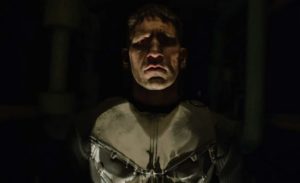 The Punisher Season 2 ends up being a hard one to recommend. I enjoyed most of my time with it, but I did feel like a hostage through most of its run time. I wanted to get to the good stuff, and knew the awesome things would rear their head…but I had to wade through a lot of bad to experience the small morsels of good. Despite the ongoing issues, I honestly think it is as good as the first season, but that is not really saying much as the first season was plagued with similar issues. This was its chance to go bigger, to go better, and instead the show just kinda showed up for its last lap before getting inevitably cancelled.
The Punisher Season 2 ends up being a hard one to recommend. I enjoyed most of my time with it, but I did feel like a hostage through most of its run time. I wanted to get to the good stuff, and knew the awesome things would rear their head…but I had to wade through a lot of bad to experience the small morsels of good. Despite the ongoing issues, I honestly think it is as good as the first season, but that is not really saying much as the first season was plagued with similar issues. This was its chance to go bigger, to go better, and instead the show just kinda showed up for its last lap before getting inevitably cancelled.
One thing is for sure through; Bernthal embodies the Punisher, and is absolutely outstanding in the roll. I just wish his supporting cast, and various arcs were more worthwhile then they ended up being, and because of these shortcomings the pace is where season two takes the biggest hit.
Go watch it if you are a completionist who wants to finish up everything Netflix Marvel has to offer, but skip it if you do not have a lot of free time to sit through hours upon hours of unrealized arcs, and narrative fluff.
Want more out from the underground?
The fastest way to hear more from us is to support our efforts by donating or get monthly perks by becoming a patron on Patreon!
Check out more of our reviews and let us know what you think on Facebook or Twitter @SubCultured! Don’t forget to join in the conversation on our Discord channel and let us know what you’d like to see next!
Got an idea for a future debate? Let us know what you want to hear by joining our Discord server!
Follow us on Facebook or tweet to us @SubCultured using the hashtag #MasterDebaters!
Though a novelist at heart, London born author Richard K. Morgan has quite the resume, having taken a dip into different corners of the writing pool. In addition to writing the story for 2011’s Crysis 2 for noted video game publisher, Electronic Arts, Morgan has also gone a few rounds with Marvel’s spy extraordinaire, Natasha Romanoff, and is currently penning a fantasy trilogy starring a gay protagonist, a surprising rarity within the genre. We hopped on the chance to discuss these things as well as his current project, a digital gamebook of his 2008 fantasy series, A Land Fit For Heroes.
Kimi Britt: At what point did you make the decision that being a writer was something you wanted to do for the rest of your life?
Richard Morgan: Well, early enough that I can’t really remember making it! J K Rowling has a nice way of putting it – she said once in interview that ever since she was old enough to understand that there were people who made their living from writing stories, that was what she wanted to be. Same for me.
KB: Were there any specific works or authors who were some of your early inspirations?
RM: I think there was always a pretty even divide between my SF and Fantasy inspirations and then the stuff you could best designate, I guess, as hardboiled. Growing up, I was a huge fan of Michael Moorcock and Poul Anderson, with a side order of Bob Shaw. But at the same age – rather alarmingly – I was also tearing through Ian Fleming’s Bond and Leslie Charteris’s (original, written in the twenties and thirties) Saint books. Then, in the late seventies, just as I was hitting my teens, I came across William Gibson’s early short stories in Omni magazine and – wow! blam! critical mass! Because, of course, what Gibson had done in those stories was synthesise an alloy of exactly those two genre strands I loved so much – hardboiled noir and the finest speculative SF. I knew instantly that this – this! – was the kind of stuff I wanted to write myself.
KB: What rituals or habits did you adopt when you first started writing, and are they still prevalent in your everyday routine?
RM: Truth is I’m not good at ritual, and the way I write – exploratory, improvised, and painfully slow! – doesn’t lend itself to particularly good working practices. What I did in the early years was just dedicate every available hour of downtime I had to writing, whenever I could and wherever I was. And to be honest, that hasn’t changed all that much even now – it’s just that these days, with no day job to distract me, I have a lot more downtime available, so I get more done!
KB: With novels, comic books, and video games in your repertoire, you’re like a triple threat of the literary world. Was there ever a dramatic difference between these genres during the creation process? Are the three vastly different?
RM: Oh fuck yes – game writing and novel writing are about as far apart as it’s possible to get as creative processes. As a novelist, you’re intensely solitary; you sit in your room and type, you sit in your room and type – usually for a year or more, with no – or at best minimal – feedback until you turn in your draft. Game writing is the exact opposite – it’s intensely collaborative, team-based, fast and modular. You spend a lot of time in meetings, going back and forth to ensure you get a good fit with the other components of the game, and you tend to work in chunks – a cut scene script, a character sketch, a set of situational lines – and you get feedback – good and bad! – on those chunks very fast. You send an item out, get it signed off – or not! – and you’re done with it, so on to the next chunk. Also – this is more an attitudinal thing than a process issue – as a novelist, you know that what you’re writing is the whole thing, whereas in game writing, the work you do is essentially just a support framework for the main gig, which is the gameplay. You could write the finest game storyline ever, the best and sharpest in-game lines in the whole wide world, but if what you’ve done doesn’t gel with the rest, or worse still actually gets in the way of the gameplay, then you’ve failed. That’s a suitably humbling thing for a novelist to take on board.
Comicbook writing, I guess, is something of a midpoint between those two extremes – what you’re doing is the main gig, but it’s a main gig you share with the artist; comparing it with game writing, it’s like the difference between being the bass player in a four or five piece band and being the guitarist in one of those guitar and female vocal duos like the Kills or Mazzy Star. There’s a lot more conscious structuring involved than in novel writing – or at least than in the way I write a novel! – but it’s still largely about uninterrupted flow the way novel work is. If writing a novel is jazz, then writing a comicbook is perhaps more like rock and roll or the blues.
KB: Your sci-fi novel, Altered Carbon, is currently being developed for a movie adaptation. As the author of the source material, how much input do you have on that project?
RM: Generally speaking, when you get a movie deal, you take the money, hand the property over, and that’s about it. It’s rare for a novelist to be involved more deeply than that unless they’ve specifically held out for that involvement contractually, and I never have. My feeling is that when you give your book to someone to turn into the a movie, you need to be comfortable about getting out of the way and letting them work. Sure, you could always jump in and ask to learn the whole exciting process of moviemaking along the way, but is the best place to get that work experience really right bang in the middle of some seasoned film professionals’ attempt to turn your novel into a blockbusting movie? That said, the people I’m dealing with in this case – Laeta Kalogridis and Mythology Entertainment – have been really great about keeping me abreast of the process. And the way the contract is structured – this is something that was offered without my asking for it – once the movie is greenlit, I’m invited to come aboard as creative consultant, which should be a lot of fun.
KB: Some book to movie translations leave fans of the original work less than satisfied with the experience. Are you apprehensive about this prospect or does it feel like a natural progression?
RMl Yeah, there’s really nothing much you can do about that. What fans (and writers!) have to understand is that the movie is not the book, and never can be, it has to change in order to work, to live and breathe in such a radically different medium. What you’re aiming to capture is not the thing itself, but the spirit of the thing. And you’ve got to have faith in the people who’ve taken on the work of making that transformation happen (or at least be sanguine about it, if you’ve sold big for what you suspect will be a pretty crappy product :-) ). Like the old James M Cain quote goes – “People tell me, don’t you care what they’ve done to your book? I tell them, they haven’t done anything to my book. It’s right there on the shelf.”
In my case, I have every faith that the people who are working on Altered Carbon really want to honour the spirit of the novel, and however much my control-freak tendencies might pop and sizzle, I just have to let them get on with the job.
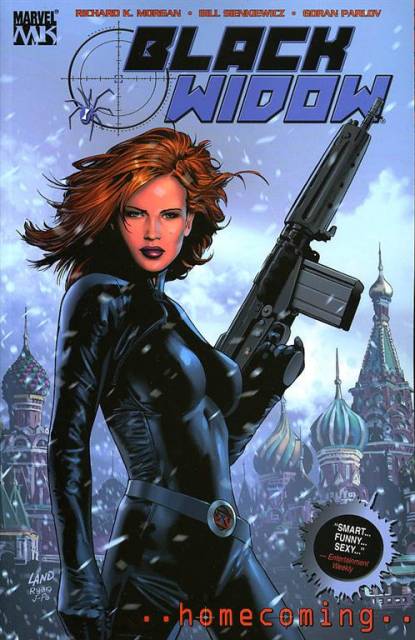 KB: With the influence you had on Black Widow’s characterization and how well the Avengers is doing, do you feel like she is accurately portrayed?
KB: With the influence you had on Black Widow’s characterization and how well the Avengers is doing, do you feel like she is accurately portrayed?
RM: Absolutely not, but what can you expect? I’ve said this before at length to Charlie Jane Anders over at Io9 – the Widow exists as an adjunct of a money-spinning superhero franchise catering to the tastes of 12 to 14 year old boys (and men who’ve somehow managed to grow up and retain a 12 to 14 year old boy heart). As such, she’s the epitome of unthreatening femininity grafted onto a pornstar’s T&A chassis and imbued with a set of plug-and-play boy-hero fisticuff character tics and reflexes. There’s nothing in that for women, nothing much in it even for genuinely grown-up males. The Widow I wrote for Marvel back in the early 2000s was her own woman, older, seasoned, hard as nails and unapologetic about it, centre stage in her own story. And let me tell you, that story flew like a fucking brick – the broad Marvel fanbase hated it. They didn’t like this genuinely empowered (and therefore genuinely feminist) female protagonist, and they voted with their wallets. The arc did disastrously low numbers by Marvel standards. So am I surprised by the version of the Widow that’s now emerged in the movies – hell, no! Just immensely saddened.
KB: Given the chance, would you ever want to return to continue her story?
RM: Are you fucking kidding! I’d love to. Writing Natasha, really letting her breathe, was a total blast! I’d jump at the chance to build a movie around her that did the same things Homecoming did. But there’s no way that’s ever going to happen. Don’t get me wrong, Marvel were great to work for; very professional, very supportive of what I was trying to do, and they really went out on a limb by letting me run with the character for a second arc when the first one had sold so dismally. But in the end, they killed the series for one very simple reason; it was a losing proposition – an expensive auteur project (I mean, we had Bill Sienkiewicz aboard, for Christ’s sake!), and doing dismally downward-spiralling numbers. By contrast, the version of the Widow you see in the movies is pulling in tens of millions of fanboy dollars. I mean, do the math – there’s just no way anyone’s going to let me within a mile of Natasha ever again! :-)
KB: Since you’ve had experience writing for both readers and gamers separately, the idea of bringing your dark fantasy series A Land Fit For Heroes to Steam, iOS, and Android as a gamebook is definitely intriguing to someone who enjoys both. How will a digital gamebook differ from the more traditional “Choose Your Own Adventure” type stories currently available? CYOA stories are typically made for a younger crowd, yet your series offers plenty of mature and controversial themes. Will these remain, and if so, how will they engage the player and the choices they make?
RM: That’s a question I’m not really qualified to answer – I never read the CYOA books back in the day, and I haven’t accessed any of the newer content either (these days I’m so busy I barely have time to read books or play games of any sort, let alone explore whole new formats!)
But my understanding from the brief the guys at Liber Primus have given me is that the vast majority of this stuff is YA-level in content. Land Fit for Heroes is avowedly not – it’s very much an adult fantasy, with adult themes and characters, and it’s as grim as anything I’ve ever written, which is saying something. So there’s that. :-)
 KB: How closely will the gamebook follow the existing story? Do players who have previously read the original have an advantage over newcomers to the series?
KB: How closely will the gamebook follow the existing story? Do players who have previously read the original have an advantage over newcomers to the series?
RM: The story in the gamebooks runs parallel to the main narrative in the novels – there’s some faint crossover with my characters in that some of them will make brief cameo appearances in the gamebook story, but the narrative thread itself follows three entirely new characters, and their adventures are disconnected from the storylines in the trilogy – though what they do and go through will be shown to have influence on the overall turn of events detailed in the novels. What this means for readers who’ve never read my stuff is that they’ll get a different initial angle of entry into my universe; but that won’t disadvantage them in any way as far as the gamebook story is concerned. And of course, if they’re curious about the wider world of the fiction, they can always go off and buy the trilogy after.
KB: What other projects are you currently working on?
RM: I’ve got a new novel up on the blocks at the moment – it’s a return to the universe of my 2007 novel Black Man, but set a good hundred or more years after the events of that story, and on a recently colonised Mars rather than on Earth. It’s called Thin Air and features another genetically modified cast-off protagonist, though a somewhat different and more down-at-heel one than Carl Marsalis in Black Man. I’ve gone right back to the noir wellspring I used in my Takeshi Kovacs books with this one – first person narrative, mean streets, corruption from high to low, a crime no-one wants solved and enemies at every turn. Feels good to be back behind the wheel of one of these!
KB: What sorts of media are you consuming in your spare time and would recommend?
RM: Not a whole lot of spare time to burn right now, I just moved from one end of the country to the other and I’m snowed under with busted deadlines. I am listening to quite a lot of music while I work, though; currently bingeing on 2 Cellos, Health and Cold Specks. And I just discovered an up-and-coming singer song-writer called Isaac Gracie whose single Last Words would make an awesome playout for a movie of my novel Market Forces. I just finished reading Ta-Nehisi Coates’ Between the World and Me, which I’d say is required reading for anyone interested in what’s happening to America at the moment and made me tremble with a father’s rage, and I’m now burning through John Horner Jacobs’ The Incorruptibles which is a superbly fresh-feeling mash-up of fantasy, alternate history and western adventure, the first of a trilogy whose second instalment, Foreign Devils, just came out – I’m running to catch up here! I’ve also been catching up on missed SF movies like Chappie and Ex Machina (both of which I guess I’d recommend seeing but neither of which in the end quite lit my fire) and more noirish fare like Scott Cooper’s Out of the Furnace and Dennis Lehane’s The Drop (both of which are awesome must-see triumphs). Still, sadly, waiting for someone in SF movie making – well, apart from George Miller, that is – to combine the vision and imagination in the former two with the close focus grit and commitment to human realities of the latter. In gaming, I’ve been making do with obsessive replays of The Last of Us, Max Payne 3 and Far Cry until there are enough good games out there to justify the expense of acquiring a next-gen console. At which point, I imagine I’ll be trying Bloodborne.
KB: Finally, where can you be found in various corners of the Internet?
RM: I keep a website at richardkmorgan.com where I try to find time and inspiration to blog at least once a month, and I’m on Twitter as @quellist1. Come on over!
Richard K. Morgan is the acclaimed author of The Dark Defiles, The Cold Commands, The Steel Remains, and Altered Carbon, a New York Times Notable Book that won the Philip K. Dick Award in 2003. A Land Fit For Heroes will be available on Android and ioS, as well as a PC version of the gamebook for Steam in the coming months.
It’s going on almost two weeks since the Doctor returned on Christmas day and reintroduced us to the mystery that is Dalek girl Clara Oswin Oswald. I’ve had plenty of time to digest so I thought I would write about the special this week, point out a few observations about the sneak peek trailer and also pose some questions. Because who doesn’t like over-thinking a BBC children’s TV show?
First, let me be frank in that I was not completely enthralled by the special. Pacing; off. Moffat just had to give Clara a saucy barmaid double life. The children and their estranged father were underdeveloped and mostly accessories; overall an excuse to have a Victorian ice nanny, which made me a bit sad as Moffat usually writes amazing child-centric stories, sort of his calling card. The main human villain wasn’t sympathetic or unlikable even in a good manner. The special effects weren’t as sophisticated as they have been lately, and the lack of panic over evil snowmen over London had me rather underwhelmed. The good however include the return of Madame Vastra, Jenny and Strax were all welcomed sights for me as Eleven absolutely needs more diverse cohorts after such Pond exclusivity. Also, the idea of the TARDIS parked on top of a stable “cloud” with a hidden staircase in the center of a park was wonderfully fairy-tale and very evocative of Victorian children’s literature. Clara’s scenes dodging the Doctor up upon the cloud were filmed beautifully.
From the previews I was hoping for a more intimate, Gothic and moody piece. Rather a PG adaptation of Turning of The Screw with Clara the new governess thwarting a, for the most part, enemy which may or may not actually exist that has been tormenting the children until the climax when they fully revealed themselves as actual aliens or the disembodied collective feeding on all of the children of London’s nightmares while their “Miss Jessel” who had drowned comes back as an actually scary ice nanny. I feel that’s what they partially were going for but the real episode was rather literal and so specific. Very retro in application but lacking in subtly. But again; children’s show, I shouldn’t expect Series 5 or The Doctor, The Widow & The Wardrobe level sophistication with every episode. Moving on, however, I wanted to point out my main concerns and confusion with the new season, as well as observations and wanted to point out two things in particular:
I. Matt’s Tenure, Plot Threads & River, or lack thereof.
River is noticeably absent. Comments have been made by the show’s producer in response to a question on whether or not River is the jealous type, specifically concerning Clara macking on the Doctor, that suggest Clara (in her third incarnation) will indeed be meeting River. However Alex Kingston hasn’t been slated for or personally stated that she will be returning for the second half of season seven, nor is she present in the trailer or on any IMDB records and information for the upcoming episodes, which are surprisingly still rather sparse and kept under lock and key.
On the other hand, considering David Tennant’s unconvincing attempts to be naive when questioned about the 50th anniversary and his possible involvement, it wouldn’t surprise me if there is indeed more River coming for us and they are being extra secretive, down to the cutting of the trailer as shown by their excellent ability to keep Jenna’s role as Oswin secret and absent from the previews and media back for the Series premiere. I mean, there has to be more River. She’s Moffat’s huge contribution to the series after all, it would be a shame to have her phased out with The Ponds. Was River’s “Not all the time” comment in regards to traveling with him at the end of Angels Take Manhattan a soft reason for her absence? Granted only 10 percent of their adventures have been shown between the show, videogames, and comics; all the rest of that diary are off-screen (and probably not family friendly anyway). The Doctor has been in a funk but his failure to mention that he is married (as he had previously done in the prequel to Asylum) to Clara after she kisses him had me concerned and makes me wonder if in the Doctor’s timeline River has already gone to the Library hence his even more dour mood. Her reveal of a promotion in title to that I believe of professor in Angels wasn’t taken very lightly by the Doctor as that means she does, whether we like it or not, go to the Library soon. But then again he was also flirty with Nefertiti, so who am I to judge?
There are still open plot threads concerning River that need to be resolved: what did happen to the rest of The Order of the Silence? How did the Silence infiltrate the Tardis, causing the explosion? (Was it really that lone Silence brand suited alien?) When does River finally learn the Doctor’s name? She certainly learns it before she goes to the library. The buzz phrases” Silence will fall when The Question is asked” (obviously “Doctor Who?”) and the “Fall of the Eleventh” and the Fields of Trenzalore seem to suggest when Matt Smith will be leaving the show and regenerate into the 12th Doctor. I mean, fall of the Eleventh, can it be more obvious? Will that be during the 50th special? Will she find that out there? How can Moffat address all of this while suddenly exploring Clara and The Great Intelligence in only eight episodes? The BBC has skirted around Matt’s continuation of the role at conventions and interviews so he might indeed be leaving after this season. However, River has to know his name before he regenerates, as their last date to the Singing Towers has already been shown in the Last Night short and he was still Eleven so she must know before then, but that could be a slightly younger Doctor. Moffat, the king of hiding little nuggets of clues and hints and tying things back together years later rather neatly hasn’t disappointed yet, but I hope these buzzwords and threads weren’t dropped in favor of exploring Clara.
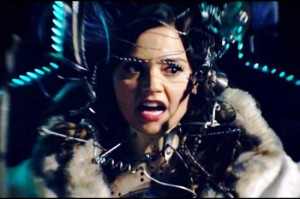
DON’T LET ME DOWN MOFFAT DAMN IT HOW MANY TIMES MUST I DIE BY THE TIME YOU TIE UP THOSE PLOT THREADS?
II. Clara Oswin Oswald’s extremely meta nature.
Clara is self-referential as hell. If Idris is the face of the Tardis, then Clara might as well be the face for the literal show. Many have pointed out that after viewing her tombstone, Clara was born on the 23rd of November, the date that Doctor Who first premiered on the BBC back in 1963. She is also 26 years old when she dies in The Snowmen, and the first initial run of the series also lasted for 26 years. The fact that she returns in a Victorian setting only to “die again” also reminds me of the 8th Doctor and the TV movie; it wasn’t until 2005 and New!Who that the classic series was officially “born again”. Her red sweater dress in the first episode was also very 60s mod, a clue perhaps to the show’s original era?
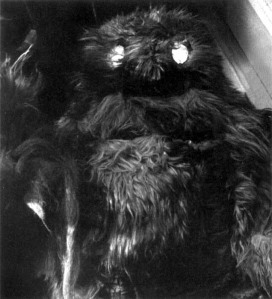
The robotic yeti the Doctor went up against from the original lost episodes Abominable Snowmen And The Web of Fear. Don’t they look like they just want a hug?
Viewers have also pointed out that the Doctor has gone up against The Great Intelligence before, but as far as we see in the The Snowmen he does not completely remember them. The Great Intelligence first appeared in 1967 in a 6 episode set in Season 5, titled The Abominable Snowmen. The title alone is referential. Much of that season’s footage has been lost or destroyed by the BBC, with only scatterings of footage remaining. In the Christmas special, the Doctor shows a map of the London Underground railway system representing a great strategic fault, something The Great Intelligence actually took advantage of and later (or rather previously) infiltrated in the 1968 serial The Web of Fear, also from the original 5th season, and also, to my knowledge, lost. So it seems to suggest the Doctor inadvertently caused his own adventure for his younger self in the 60’s, an adventure both he and the BBC no longer remember or readily have access to.
Taking that into consideration, Clara’s dying catchphrase “Run, run you clever boy, and remember” seems far more important than it currently lets on. Is the second half of Series 7 about reclaiming a chunk of adventures that were “lost”? Has The Doctor gotten so good at going around erasing himself from history across the universe in trying to escape the Silence that he himself is forgetting what he has done himself? The erasure of these adventures from the Doctor’s memories inadvertently of his own machinations, seems like a meta analogy to the real life archival destruction of the original Series 5 and also mirror Oswin’s in story ability to hack into the Daleks’ hive-mind database and delete the Doctor from their memories or “archives”. Her dying tear in The Snowman also seemed to be the clincher that linked into the Great Intelligence’s similarly collected consciousness, as that one tear turned all the snow in London into rain. The dialogue indicates that it was the family’s sadness that caused the crying rain, but it seems more likely that Clara and her single tear was ultimately responsible. If that is the case, then it is twice now that Clara has “hacked” into a hive like entity and saved the day.
The Doctor has every right to be curious about Clara. And so should we.
So yes, while the Special itself wasn’t really all that special or at least as special as I thought it could be, Moffat and his evil cohorts at the BBC are cooking up something extremely complex, and so far extremely fitting for the 50th anniversary; self referential, retrotastic, and entirely aggravating.
And so we wait (kicking and screaming while still selfishly crying over the Ponds) for April.


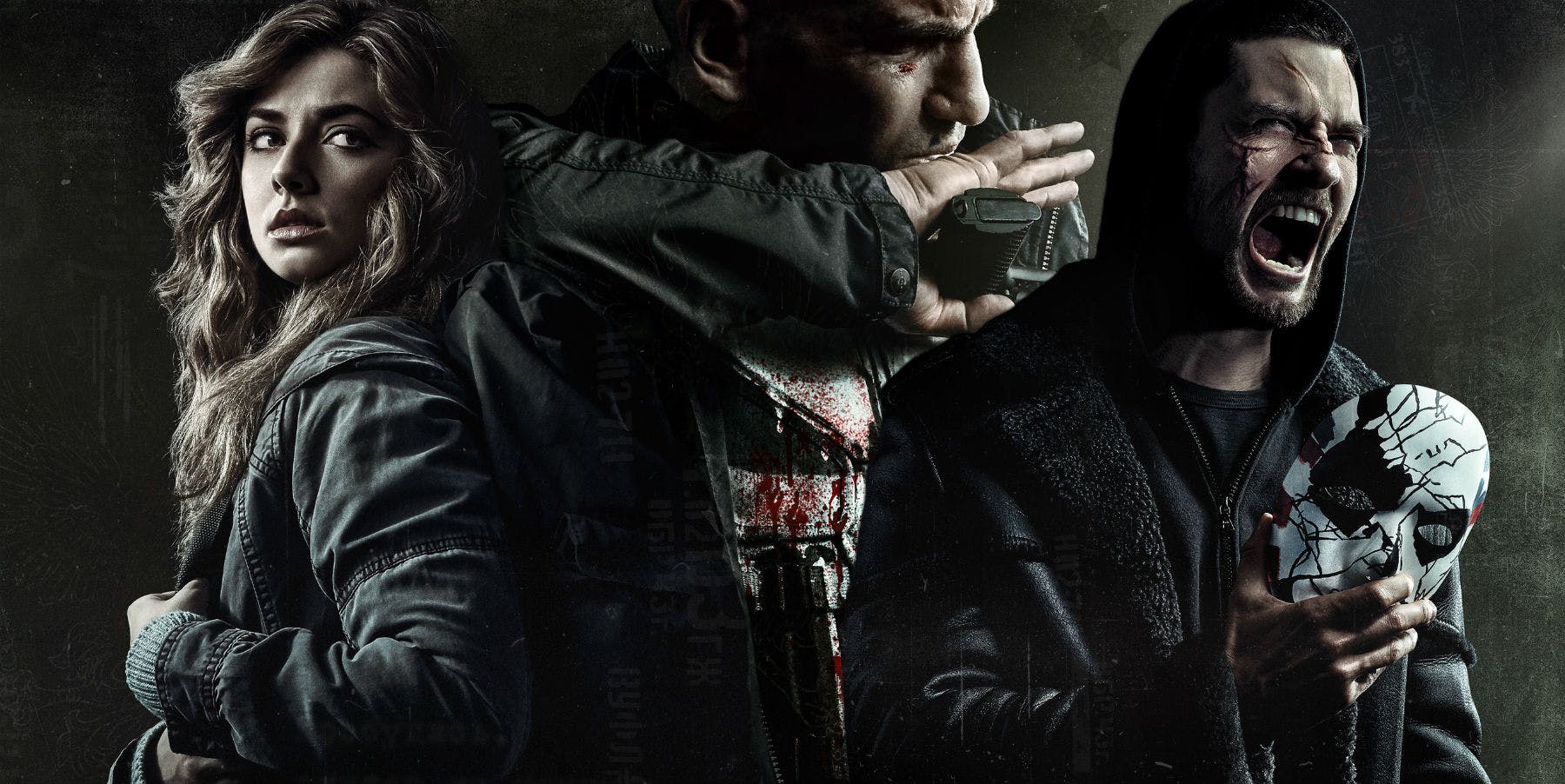
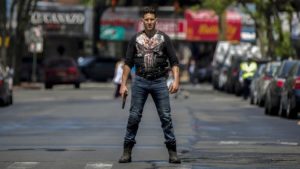
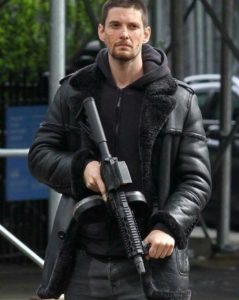
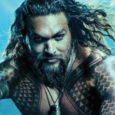


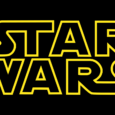


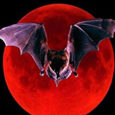
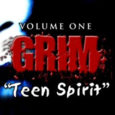

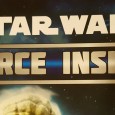

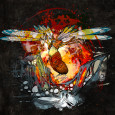






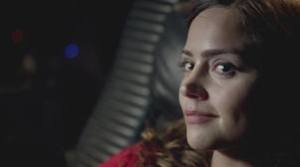


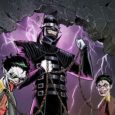


 IT’S AAAAAAAAAAAAAADVENTURE TIME!
IT’S AAAAAAAAAAAAAADVENTURE TIME! “It was like a bomb dropped in the office when we announced Adventure Time,” says BOOM! Studios Editor-in-Chief Matt Gagnon. “Everyone at BOOM! was just as excited as any fan. Adventure Time is such a classic story at its heart- a boy and his dog on different adventures – but the genius of the show allows us to take a simple concept and get really creative with the presentation. Everyone we’ve worked with is a huge fan of the show and creator Pen Ward has been instrumental in bringing this comic book to life. ”
“It was like a bomb dropped in the office when we announced Adventure Time,” says BOOM! Studios Editor-in-Chief Matt Gagnon. “Everyone at BOOM! was just as excited as any fan. Adventure Time is such a classic story at its heart- a boy and his dog on different adventures – but the genius of the show allows us to take a simple concept and get really creative with the presentation. Everyone we’ve worked with is a huge fan of the show and creator Pen Ward has been instrumental in bringing this comic book to life. ”